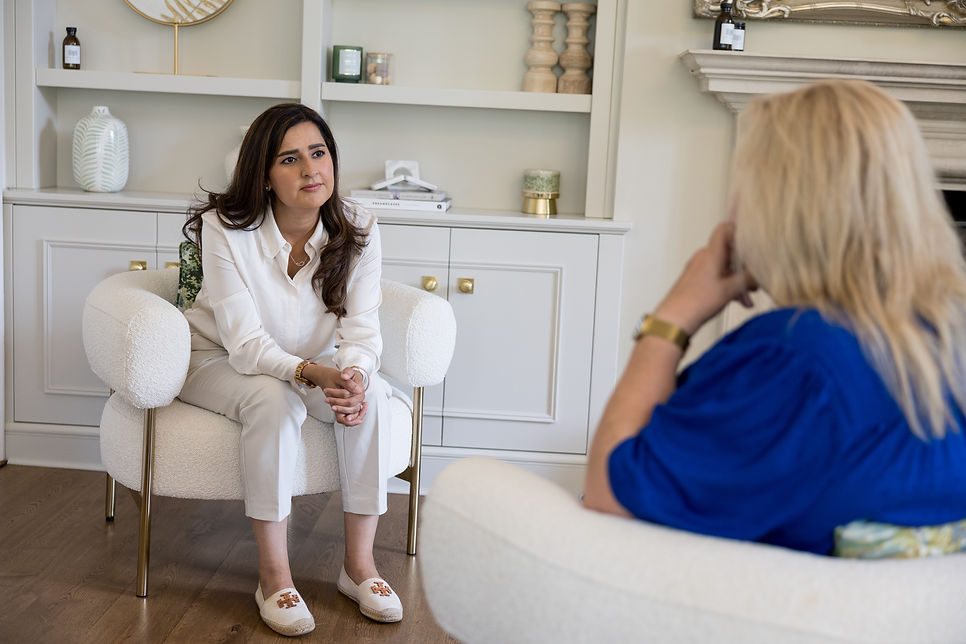top of page

Frequently Asked Questions
You can use the Contact form (https://www.sscounsellingconsultancy.com/contact)on the website, or you can phone, text or email me, whichever feels best for you. I will normally respond within 24 hours at which point we can make an arrangement for an initial assessment appointment on the day and time that suits you best. I will then share the address with you, or if online email you the Zoom Invitation, or if phone therapy, telephone you at that time.
If you follow the same procedure as described above for booking an appointment for yourself; I will need to incorporate a short meeting between myself, you and your child (approx 10-15 mins) so that all parties are clear about confidentiality, data protection and safeguarding requirements work when a young person accesses counselling
An assessment is carried out in your first session, where you tell me about you, what has brought you to Therapy and what you may like to achieve through attending. It is a good opportunity for you to decide if I am the right therapist for you, and for me to consider if I am the best person to help with your specific needs. Or whether it would be in your best interests to signpost you to a more appropriate therapist or service. During the assessment session, I will take down some information on an assessment form. This is the only time I will take notes during a session; I make short factual notes at the end of each session as an “Aide memoire” which are stored securely according to Data Protection regulations. Please note that an assessment session will also be 50 minutes long and the same price as any other session. The only instance where this is different is when you are having Couple Counselling, the Assessment session will last 1 hour and 30 minutes, and be priced the same as any Couple Counselling session. Thereafter, couples counselling sessions are 60 minutes long.
On our first meeting we would discuss therapy and how it may be of benefit to you. We would also discuss whether open ended or time limited therapy would work best for you. Open ended therapy means attending regular sessions (usually weekly) until you reach a stage whereby you feel confident and comfortable to work towards a suitable date for ending. Time limited therapy is geared towards a specific number of sessions, ranging anything from 6 to 12 and these would be agreed at our initial meeting. A session lasts for 50 minutes, unless it is Couple Counselling which is 1 hour. This applies to Walking and any Creative therapies also, a 50 minute session. Many issues can be resolved in short-term work, whilst others may require longer term work.
Think of therapy as part of a journey, whereby you will know when you reach the end of the journey, or feel that you want to stop. For some clients a few sessions may be sufficient, whilst others may prefer to continue on a longer term basis.
I understand that some people may find it difficult to commit to weekly sessions for a variety of reasons and offer some flexibility around this. However I do believe that maintaining some consistency is helpful and would highly recommend that weekly sessions are attended in the initial stages of therapy.
At the start of our sessions we will commit to an agreement for working together. Within this agreement, it will be set how much notice is required if unable to attend or taking a holiday. Emergency and last minute cancellations will be considered on an individual basis.
It is common to feel an immediate relief from therapy as clients begin to deal with issues possibly for the first time.Therapy can bring about an immediate improvement for some as a result of clarifying painful situations, identifying goals and sharing how they feel or what is happening to them. Sometimes the change is more gradual, taking place over time, whilst others may realise the benefits once the therapy has come to an end. One way of recording your own progress is to keep a journal or diary on which you can look back.
Exploring painful events and memories can make you feel worse before feeling better. This is something which will be discussed in our sessions so that we can consider strategies for coping with difficult feelings. There may not be any sudden revelations or answers which turn things around. Much of the improvement also depends on the client’s commitment to the process and their willingness to reflect and develop awareness between each session.
Some clients have concerns about what might happen if they start exploring their own psychological make up. Some are concerned that a therapist might cause emotional harm or read their thoughts. It is natural to be apprehensive about something new. It is important to discuss any concerns and ask questions before making a decision. Therapists are trained and experienced in supporting clients who are feeling apprehensive, lost, scared, sad or vulnerable.
We will have regular reviews during your sessions. However, if you feel like either it’s not the right time for you, or that I am not the best fit for you, then please raise this with me as soon as possible. I will be happy to postpone sessions until a more appropriate time. Alternatively, I have a wide network of highly experienced colleagues who I could refer you to, or could signpost you to directories where you can access details of other professionals.
bottom of page
